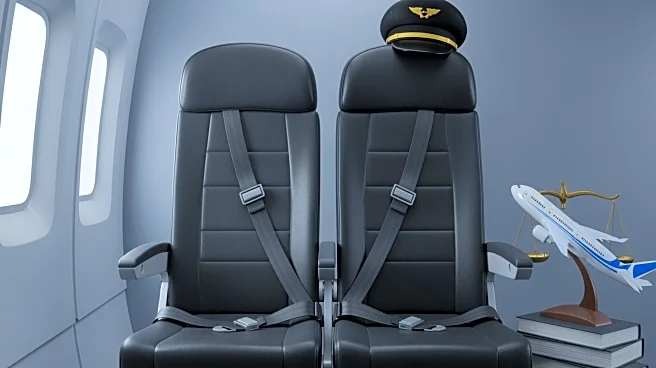What's Happening?
Fourteen families of victims from a Jeju Air crash in South Korea have filed a lawsuit against Boeing in the United States. The crash, which occurred in December 2024, resulted in the deaths of 179 out of 181
passengers. The aircraft exploded after hitting a concrete-reinforced berm following a belly landing. Investigators are examining several potential causes, including a bird strike reported by the pilots, the berm's presence, and the decision to shut down a less-damaged engine. This lawsuit is part of a series of legal actions against Boeing, accusing the company of failing to update equipment on the aircraft.
Why It's Important?
The lawsuit against Boeing highlights ongoing concerns about aircraft safety and the responsibilities of manufacturers in ensuring the safety of their products. The outcome of this case could have significant implications for Boeing, potentially affecting its financial standing and reputation. It also underscores the broader issue of aviation safety and the need for rigorous oversight and updates to aircraft technology. The families' pursuit of justice reflects the demand for accountability in the aviation industry, which could lead to changes in regulatory practices and safety standards.
What's Next?
As the investigation into the crash continues, the legal proceedings in the United States will likely unfold over the coming months. Boeing may face increased scrutiny from regulators and the public, potentially leading to further lawsuits or regulatory actions. The aviation industry will be watching closely, as the case could set precedents for how similar incidents are handled in the future. Stakeholders, including airlines and regulatory bodies, may need to reassess safety protocols and equipment standards to prevent future tragedies.








